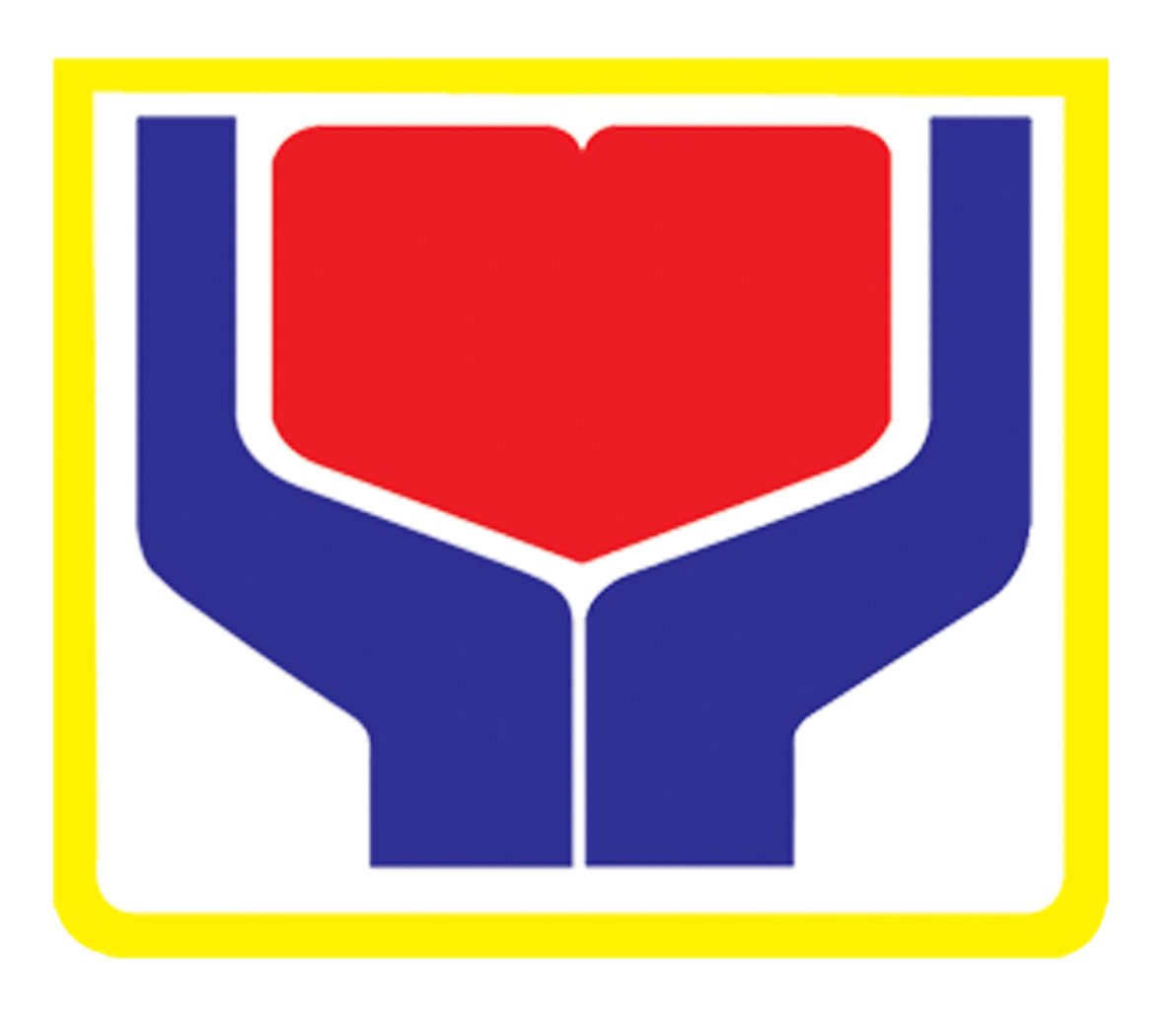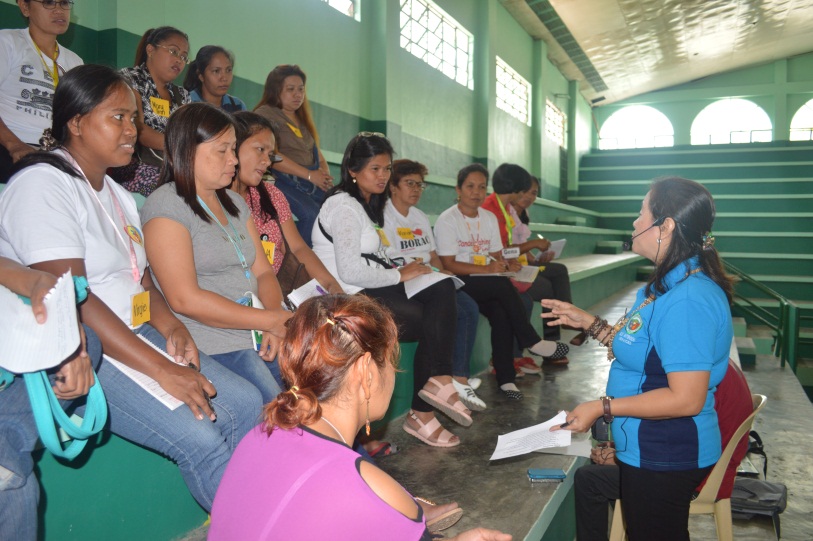BEING HEARD. Rosemarie Sebuc, 38, a beneficiary of the Pantawid Pamilyang Pilipino Program from Candelaria, Quezon Province, shares to fellow beneficiaries to work hard and not rely on the cash grants provided by the program to improve their lives. A solo parent, Rosemarie thanks the program for the Family Development Sessions that helped her become a better parent, especially on teaching her to manage their finances better.
Rosemarie is one of at least 180 parent-beneficiaries who participated in the forum last April 27, 2015 facilitated by the Southern Luzon State University in Lucban, Quezon. A series of similar activities like this, all facilitated by civil organization partners of the DSWD, are being conducted in all provinces to hear the voice of the people and gain their insights on the impact and challenges of the different programs and services of the Department.
EXTENSION SERVICES FOR THE POOR. Dir. Lourdes Quevada of the Office of Extension Services of the Southern Luzon State University (SLSU) in Lucban, Quezon, talks to beneficiaries of the Pantawid Pamilyang Pilipino Program and listens to their experiences and challenges as recipients of the different programs and services of the DSWD during a forum with 180 beneficiaries facilitated by the university last April 27.
******************************************************************************************************
SLSU hears the voice of Pantawid beneficiaries
Beneficiaries of the Pantawid Pamilyang Pilipino Program in Quezon Province shared their experiences as recipients of different programs and services of the Department of Social Welfare and Development (DSWD) in a forum facilitated by the Southern Luzon State University (SLSU) in Lucban in the said province. The SLSU is a civil society organization (CSO) partner of the DSWD in the implementation of its different programs and services.
At least 180 program-beneficiaries from Lucban and nearby cities and towns of Tayabas, Lucena, Sampaloc, Candelaria, Sariaya, Tiaong and Pagbilao participated in this forum, which was held last April 27.
Dir. Lourdes Quevada of the Office of Extension Services of SLSU, in her message to the participants, explained that the activity is a means to hear the voice of the beneficiaries of DSWD programs and services, particularly of the Pantawid Pamilyang Pilipino Program.
“Malaki ang role na ginagampanan ng bawat benepisyaryo rito sa pagpaparating sa DSWD kung ano ang talagang nangyayari sa kanila. Ang talakayang ito ay isang mekanismo para matulungan nating ipahatid ang mga magagandang pangyayari at mga problema sa implementasyon upang ito ay matugunan ng DSWD,” said Dir. Quevada.
She also added that the SLSU has voluntarily facilitated the said forum to help the DSWD and the people, and also as part of the university’s extension services of helping uplift the quality of life of the poor.
Participants in the forum highlighted how the DSWD programs and services help their families, especially in ensuring that their children are in school and enhancing their capacities as parents and citizens through the monthly Family Development Sessions.
DSWD IV-A Regional Director Leticia Diokno thanked the SLSU for facilitating such forum and also the beneficiaries for sharing their experiences and raising issues such as possible inclusion errors, selection of beneficiaries and processing of updates and payments.
“Kayo ay kaagapay namin sa pagpapatupad ng programa. Tulungan n’yo kami sa pamamagitan ng pagrereport sa amin ng mga nangyayari sa inyong komunidad para amin itong agad na mabigyan ng aksyon,” Dir. Diokno addressed the beneficiaries
Dir. Diokno also acknowledged the beneficiaries for highlighting how the government programs and services, not just the Pantawid Pamilya but also Kalahi-CIDSS, Sustainable Livelihood Program and Philhealth, are helping them towards improving the quality of their lives.
Rosemarie Sebuc, 38, a participant-beneficiary from Candelaria, Quezon shared that she learned how to manage their finances better and despite being a solo parent, she has managed to support her children.
“Natutunan ko na hindi habang buhay ay tayo ay mahirap. Dapat tayo ay magsumikap at hindi umasa na lang sa programa para maiahon ang ating buhay,” Sebuc added.***

